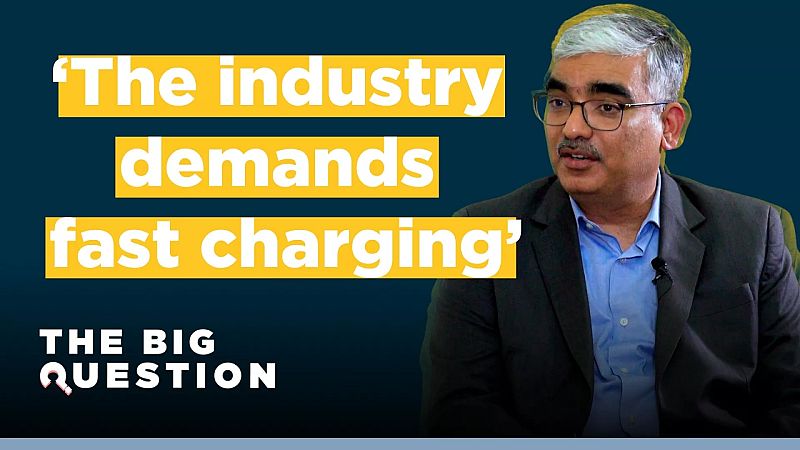Fast chargers are ‘critical’ for EV industry to sustain growth, says Tata Elxsi CEO
The Tata Group is India’s largest conglomerate, with a combined market value of around €283 billion, as of March 2025. Some of its best known companies include Tata Steel, Air India, and Tata Motors, owner of Jaguar Land Rover.
Also within the group is Tata Elxsi, a design and engineering firm. Known for working closely with the Indian Space Research Organisation, the company has an additional focus on developing solutions for the automotive industry.
By 2035, the EU has decreed that no new internal combustion engine (ICE) cars will be sold in the bloc. But, with just ten years left on the clock, are we where we need to be?
In this episode of The Big Question, Hannah Brown is joined by Manoj Raghavan, CEO and Managing Director at Tata Elxsi, to discuss how design innovation could help Europe achieve its EV targets.
According to Manoj, the cost of EVs and the availability of chargers are the two key factors holding Europeans back from going electric.
“Europe needs, in my understanding, a minimum of three and a half million public charging points, and up to 8 million public charging points,” Manoj explained.
There’s currently estimated to be around 1 million chargers across Europe, mainly concentrated in major cities in the Netherlands, Germany and France.
“However, the challenge is not just about the number of public chargers, the challenge is also about the number of fast chargers that are available,” he added.
Right now in Europe, there’s only around one charger for every 13 EVs. Manoj estimated that number should be around 1:2 or 1:3, to make it a convenient option for the masses.
What’s more is that we need around 60-70% of those to be fast charging stations, but only 13% have that capacity right now, he said.
“As you have more EVs on the road and especially during either peak hours or during holiday season, when everybody is on the roads and the chargers are clogged, that doesn’t give a good user experience, so people will soon start missing their ICE engines,” Manoj added.
“So I think unless the charging infrastructure keeps up, it will be difficult for the EV industry to sustain growth.”
Related
EVs have been around a little while now, meaning issues with battery fires, faults and costs have been dramatically reduced, though many would argue that high prices remain a barrier to uptake.
One of the major issues facing the industry today is the cost, both financially and to the planet, of the raw materials to make the batteries and the security of their supply.



Leave a Comment
Your email address will not be published. Required fields are marked *